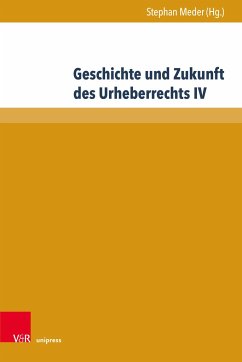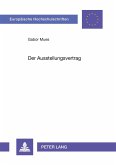Die Beiträge dieses Bandes behandeln das breite Spektrum historischer und aktueller Problemstellungen eines interessengerechten Urheberrechts. Sie reichen von Textübernahmen in den Werken des Humanisten Conrad Lagus über die Zensurpolitik gegen Gerhart Hauptmanns Sozialdrama »Die Weber« bis zu der Frage, ob ein Mäzen einen Künstler zur Werkschöpfung gerichtlich zwingen kann. Darüber hinaus werden Einblicke in die Frühgeschichte des EDV-Rechts gewährt sowie Aufschlüsse über die Lizenzierung von Plattform-Software und das Leistungsschutzrecht für Presseverleger gegeben. Der Band macht deutlich, dass der in allen Zeiten bestehende Interessenkonflikt zwischen Schöpfer, Verwerter und Nutzer mit vorgefertigten Schablonen nicht zu lösen ist.
The contributions in this volume deal with the broad spectrum of historical and current problems of copyright law. They range from text adaptations in works by the humanist Conrad Lagus to the censorship policy in Gerhart Hauptmann's social drama "The Weavers" ("Die Weber") and to the question of whether a patron can force an artist to create a work. In addition, insights are provided into the early history of IT law as well as findings on the licensing of platform software and the copyright law for press publishers. The volume makes it clear that the conflict of interests between creator, exploiter and user, which has always existed, cannot be resolved with ready-made templates.
The contributions in this volume deal with the broad spectrum of historical and current problems of copyright law. They range from text adaptations in works by the humanist Conrad Lagus to the censorship policy in Gerhart Hauptmann's social drama "The Weavers" ("Die Weber") and to the question of whether a patron can force an artist to create a work. In addition, insights are provided into the early history of IT law as well as findings on the licensing of platform software and the copyright law for press publishers. The volume makes it clear that the conflict of interests between creator, exploiter and user, which has always existed, cannot be resolved with ready-made templates.








